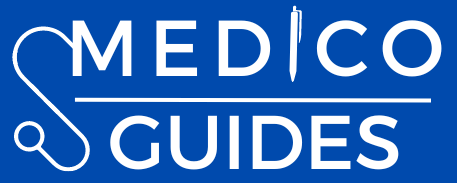Prepared by:
Chaman Zulfiqar (G12)
Compiled by:
Hafiz Muhammad Umair Noor (G12)
Reference Books:
- Mini Katzung Pharmacology Edition 2024-25
(N-Ph-001)
Chapter 54:
- Cell cycle kinetics
- The log kill hypthesis
- Fig 54.1
(N-Ph-002)
Chapter 54:
- Page 457, from alkylating agents to page 461, upto mitomycin.
- This topic is quite lengthy, so for quick revision go for drug summary table given at end of chapter.
Anti-Tumor Drugs Associated with Rehabilitation
Anti-tumor drugs related to rehabilitation are given in a scattered way, I’m attaching this topic below:
Drugs Causing Neuropathy (Physical Rehab needed)
- Vincristine (Vinca alkaloid) – M-phase specific
- Paclitaxel / Docetaxel (Taxanes) – M-phase specific
Rehab: Gait training, balance therapy, TENS, fine motor coordination
Drugs Causing Fatigue & Muscle Wasting
- Methotrexate (Antimetabolite – S-phase)
- 5-Fluorouracil (5-FU) – S-phase specific
- Cisplatin (Platinum compound – non-specific)
Rehab: Graded exercise therapy, energy conservation, physiotherapy
Drugs Causing Cardiotoxicity (Cardiac Rehab needed)
- Doxorubicin (Anthracycline – CCNS)
- Cyclophosphamide (Alkylating agent – CCNS)
Rehab: Cardiac monitoring, endurance training under supervision
Drugs Causing Cognitive Dysfunction (Chemo Brain)
- Cytarabine (S-phase)
- Ifosfamide
Rehab: Memory training, concentration techniques, mental exercises
Drugs Causing Bone/Muscle Issues (Orthopedic Rehab)
- Anastrozole / Letrozole (Aromatase inhibitors – Hormonal therapy)
Rehab: Joint mobility exercises, bone-strengthening routines
Drugs Causing Psychological Disturbance
- Tamoxifen (SERM – Hormonal therapy)
Rehab: Counseling, support groups, psychiatric intervention
Drugs for Tumor Lysis Syndrome (TLS)
Drugs for tumor lysis sundrome are also not given in summarized way, you can do this topic as given below:
- Allopurinol – Prevents uric acid formation
- Rasburicase – Rapidly lowers existing uric acid
- IV Fluids – Flush out toxins, protect kidneys
- Insulin + Glucose – Shifts potassium into cells (for hyperkalemia)
- Calcium Gluconate – Stabilizes heart in severe hyperkalemia
- Loop Diuretics (e.g. Furosemide) – Increases excretion of potassium/phosphate
- Phosphate Binders (e.g. Sevelamer) – Treat hyperphosphatemia
- Potassium Binders (e.g. Patiromer) – Lower high potassium
- Dialysis – For severe cases or kidney failure
Drugs Used To Treat Complications Of Cancer
(Beside Surgical Resection)
1. Chemotherapy – Destroys cancer cells systemically
- Used for: Tumor shrinkage, metastasis, pain relief
- Examples: Cyclophosphamide, Doxorubicin, Methotrexate
2. Radiotherapy – Local tumor control, pain relief
- Used in: Brain mets, bone pain, spinal cord compression
3. Hormonal Therapy – Blocks hormones that fuel certain cancers
- Used in: Breast (Tamoxifen), Prostate (Leuprolide) cancers
4. Targeted Therapy – Blocks specific tumor growth pathways
- Examples: Imatinib (CML), Trastuzumab (HER2+ breast cancer)
5. Immunotherapy – Boosts immune response against cancer
- Examples: Pembrolizumab, Nivolumab
6. Bisphosphonates – Manage bone mets, reduce fractures
- Example: Zoledronic acid
7. Steroids – Reduce edema, especially in brain/spinal mets
- Example: Dexamethasone
8. Anti-emetics, painkillers, growth factors – Supportive care during treatment
Glucocorticoids In Anti-Cancer Drug Cocktails
Glucocorticoids (e.g., prednisone, dexamethasone) are steroid hormones used in many anti-cancer drug regimens, especially in hematological malignancies. Here’s how they help:
Mechanisms & Roles in Cancer Therapy
1. Cytotoxic to lymphoid cells
- Directly induce apoptosis in leukemias and lymphomas (esp. ALL, NHL).
2.Anti-inflammatory& Immunosuppressive
- Reduce tumor-associated inflammation.
- Prevent hypersensitivity or allergic reactions to other chemo drugs.
3. Part of Chemotherapy Regimens
- ALL (Acute Lymphoblastic Leukemia): Used in VDP or Hyper-CVAD protocols.
- NHL (Non-Hodgkin’s Lymphoma): In CHOP regimen:
- Cyclophosphamide, Hydroxydaunorubicin, Oncovin (vincristine), Prednisone.
4. Supportive Role
- Manage nausea/vomiting in chemotherapy.
- Reduce edema in brain tumors.
- Improve appetite and energy in terminal cases (palliative care)
Common Glucocorticoids Used
- Prednisone
- Dexamethasone
- Methylprednisolone
Side Effects (Long-Term Use)
- Immunosuppression
- Hyperglycemia
- Osteoporosis
- Mood swings
- Cushingoid features

